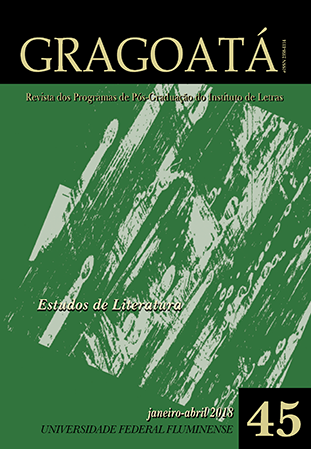Democracy, totalitarianism, and illiteracy in 'The Reader', by Bernhard Schlink
DOI:
https://doi.org/10.22409/gragoata.v23i45.33573Keywords:
Bernhard Schlink, World War II, Illiteracy, NazismAbstract
Literature makes possible dialogues about important moments of History by bringing the memories, dialogues, and view of main characters and other people who have lived the period. The years between the two World Wars as well as the massacre perpetrated during the World War II are theme of diverse fiction works that propose to reflect about a period in which people were placed as servants of a totalitarian state to the detriment of the collective rights and the citizenship. In The Reader, Hanna takes decisions that, for many times, seem to harm her, in the search for omitting a big secret: not being literate. The shame of being illiterate is so strong that Hanna renounces the professional rise or even prefers to be seen as a Nazi executioner not to have her secret revealed. The work of Bernhard Schlink allows us to unravel a moment of History in which people were turned into pieces of a state, acting not like autonomous subjects, with ethical and moral values, but in the name of a greater collective good that would be the construction of a big and strong nation.
---
Downloads
Downloads
Published
How to Cite
Issue
Section
License
Authors who publish in Gragoatá agree to the following terms:
The authors retain the rights and give the journal the right to the first publication, simultaneously subject to a Creative Commons license CC-BY-NC 4.0, which allows sharing by third parties with due mention to the author and the first publication by Gragoatá.
Authors may enter into additional and separate contractual arrangements for the non-exclusive distribution of the published version of the work (for example, posting it in an institutional repository or publishing it in a book), with recognition of its initial publication in Gragoatá.

Gragoatá is licensed under a Creative Commons - Attribution-NonCommercial 4.0 International.











